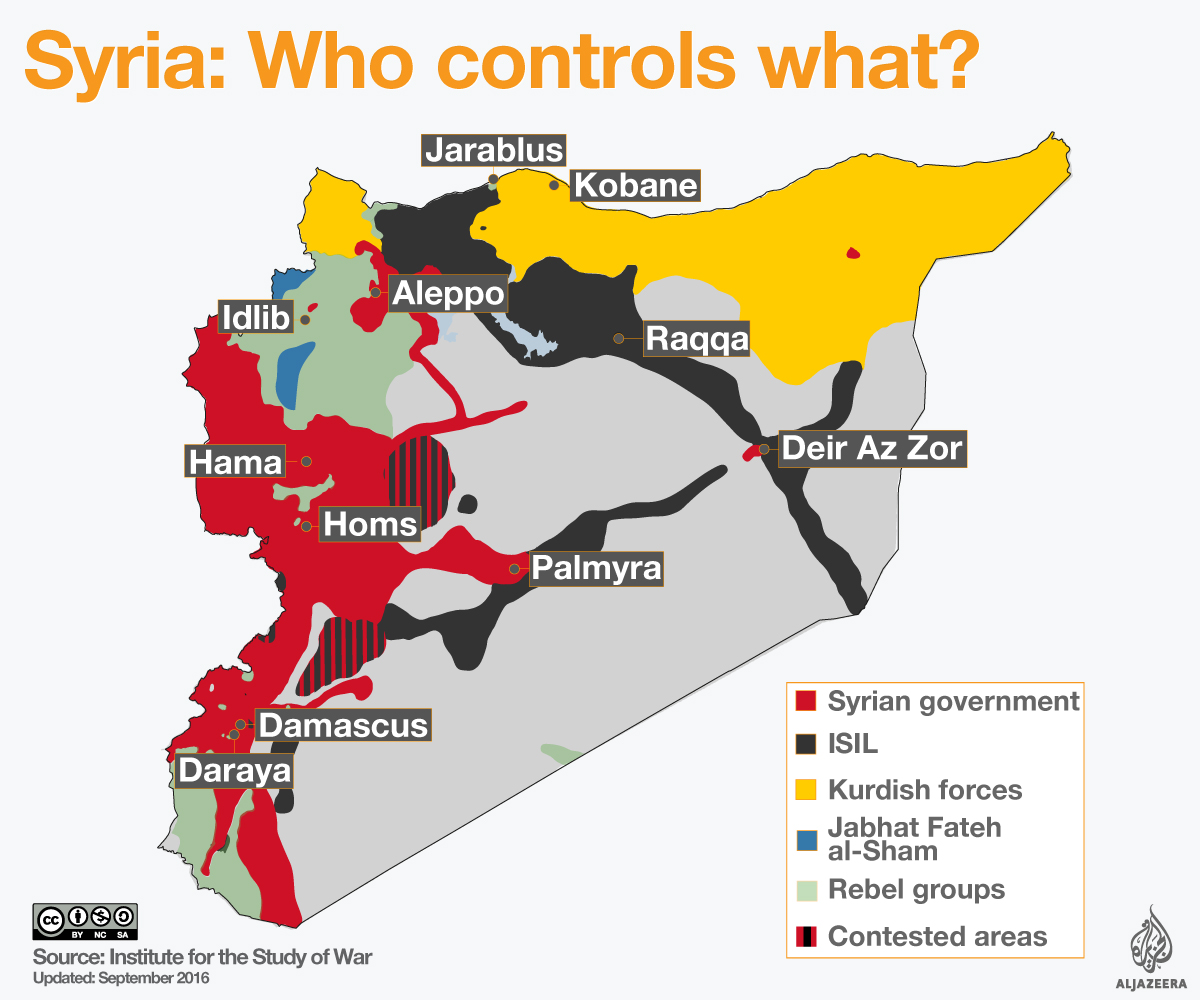UN: Eastern Aleppo residents at risk of mass starvation
UN warns there will soon be no food left to distribute in rebel-held sector unless aid is immediately allowed in.

The UN has urged the Syrian government, Russia and rebel groups to immediately allow food deliveries to besieged areas of eastern Aleppo, issuing a bleak warning that the 250,000 civilians still trapped in the divided city are at risk of mass starvation as the winter sets in.
Jan Egeland, the head of a UN-backed humanitarian task force for Syria, said on Thursday that the last remaining food rations were currently being handed out in rebel-held eastern Aleppo and there would be nothing left to distribute next week without a resupply.
Keep reading
list of 4 itemsUS blocks Palestinian push for full UN membership at Security Council
Why is Germany maintaining economic ties with China?
UN’s Libya envoy resigns citing no hope for political progress
“I don’t think anybody wants a quarter of a million people to be starving in east Aleppo,” Egeland said, referring to the number of civilians the UN says are living under siege.
|
|
He urged all sides – the regime, its key ally Russia and the opposition fighters – to grant humanitarian access, adding that with winter approaching it was the only way to avoid mass starvation.
Egeland said he was confident access would be possible after four months of deadlock because “the consequences of no help and no supplies will be so catastrophic I cannot even see that scenario”.
Al Jazeera’s Osama bin Javaid, reporting from Gaziantep on the Turkish side of the Syria-Turkey border, said that Egeland’s comments came as activists in eastern Aleppo said that they were fast running out of not just food but also medicines.
“Up until about last week, they had three to four weeks of supplies left, and the last time actually supplies went in was in August when rebels broke the siege and entered the besieged city of Aleppo,” he said.
“Since then, the government has taken back control … No aid has been allowed in, the Syrian government says that it … has offered truces, various offers, but that had been set back by rebel groups on the ground.
“So a bleak warning from the UN’s adviser that this is going to be yet another harsh winter for the people of Syria, in general, and particularly for the people of Aleppo who are fast running out of things to eat and things that could cure them.”
|
|
Egeland also warned that the incoming cold weather will be “a real killer” and said the UN urgently needed approval for its eastern Aleppo relief plan.
The plan includes the delivery of both medical and food supplies, as well as medical evacuations and deployment of medical personnel.
Once Syria’s economic powerhouse, Aleppo has been devastated by fighting since the rebels seized the east of the city in 2012, turning its historic heart into a battlefield.
The army cut the last supply route into rebel-held territory in July, leaving more than 250,000 civilians still living there without access to basic goods.
On Wednesday, the Syrian army took control of a strategic district of eastern Aleppo in what would mark the most important advance in the divided city by the government and its allies in weeks.
The Syrian Observatory for Human Rights (SOHR), a UK-based group that reports on the war, said government forces and their allies seized full control of 1070 apartments, calling it the most significant gain by the government in Aleppo since it launched a ground attack in September.
INFOGRAPHIC: Aleppo – who controls what?
The Syrian civil war started as a largely unarmed uprising against President Bashar al-Assad in March 2011, but quickly escalated into a full-on armed conflict.
Calculating a precise death toll is impossible, partially owing to the forced disappearances of tens of thousands of Syrians whose fates remain unknown.
However, in April, Staffan de Mistura, the UN’s Syria envoy, estimated that more than 400,000 Syrians had been killed.
Almost 11 million Syrians – half the country’s pre-war population – have been displaced from their homes.
